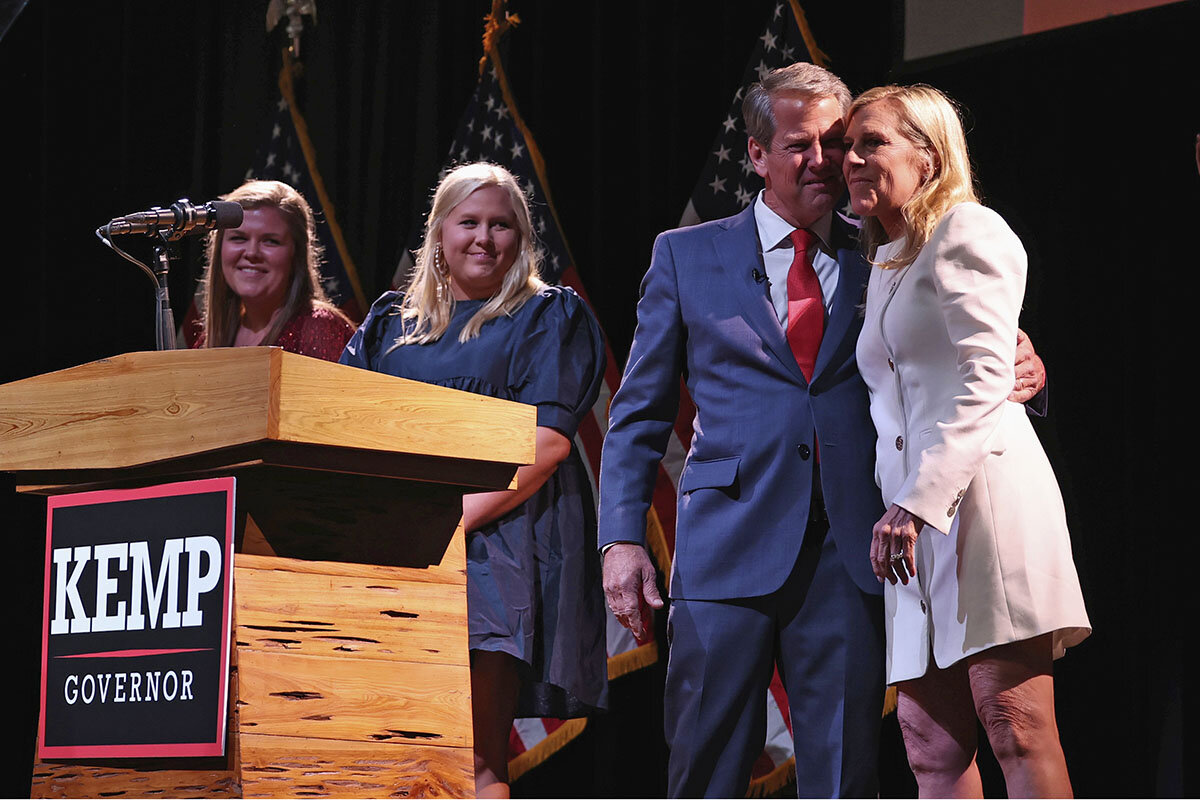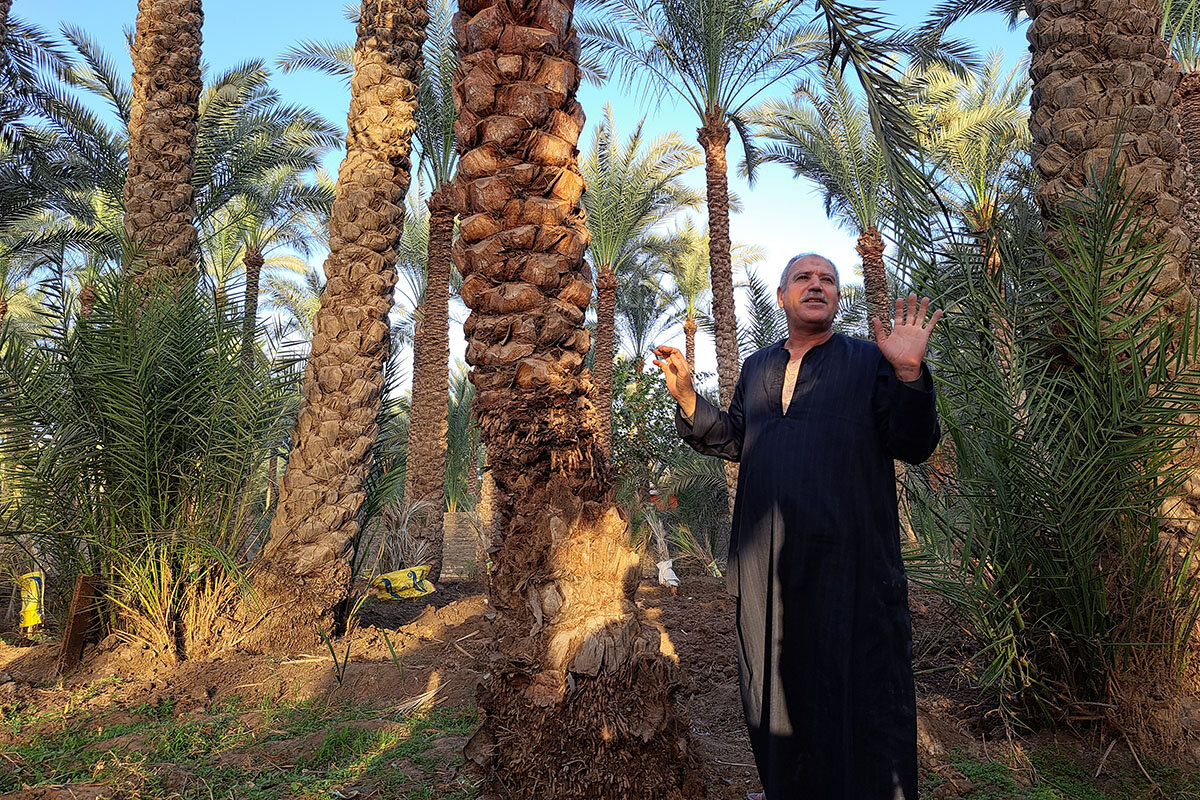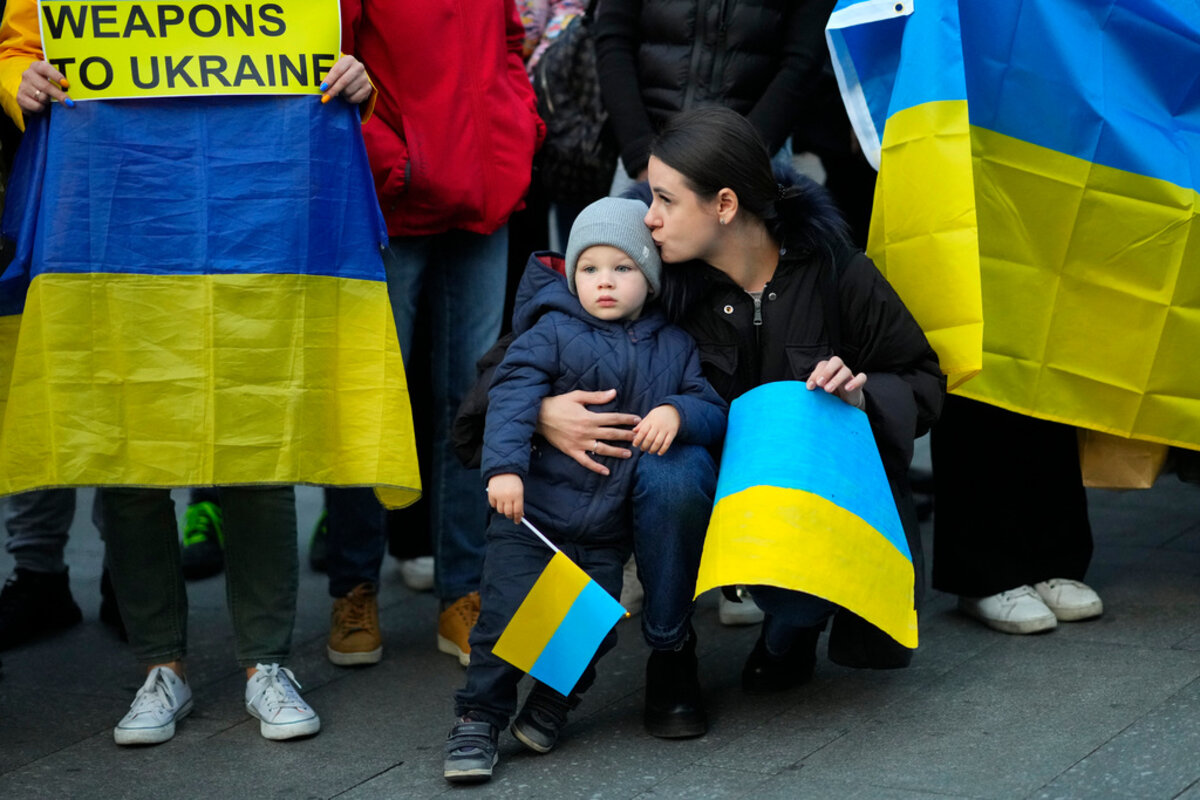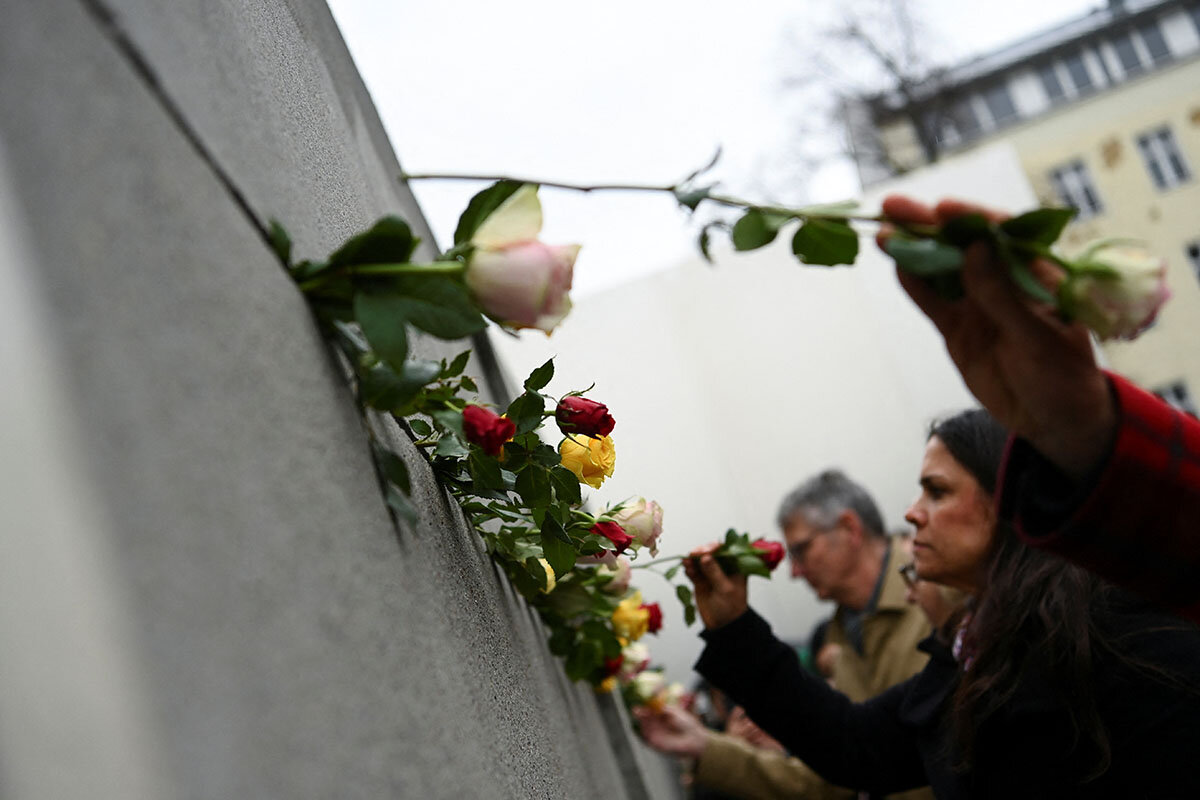Democrats overcame historical trends and poor economic conditions in a number of key races, though the full picture is still emerging. Voters in particular seemed to reject statewide candidates who denied the 2020 results.
Monitor Daily Podcast
- Follow us:
- Apple Podcasts
- Spotify
- RSS Feed
- Download
 Amelia Newcomb
Amelia Newcomb
Around the world, countless members of Iran’s diaspora have been riveted by the protests that erupted in September after 22-year-old Mahsa Amini, detained in Tehran for wearing her head covering too loosely, died in custody. Razieh Javaheri is one of them. She and her husband, Tanin Persa, who fled Iran in the early 1980s, are watching news “24/7.” These protests, she says, of those they’ve observed over decades, feel different.
“In past protests, people wanted to make the system better, to promote reform,” says Mrs. Javaheri, a retired molecular biologist who has lived in the United States for about four decades. Now, “young people are saying enough; we don’t want you [the government] anymore.”
She and Mr. Persa have watched as Iranian women, men standing with them, have demanded more rights, burning headscarves, going on strike, tearing down gender-separation barriers at universities, staging sit-ins. Hundreds of people have been killed, rights groups say; on Tuesday, parliament supported the death penalty for thousands of detained protesters.
Yet protests persist, nearly two months on, and women – the frequent target of so-called morality police under the hard-line Raisi government – have remained in the forefront.
That’s inspired Mrs. Javaheri. She and her husband have regularly joined thousands of people marching in solidarity on the National Mall. It’s inspired her daughter as well, for whom a sense of distance from events in the country she last saw at age 5 began to dissipate as she too joined in. “If you attend these demonstrations, you will see that ... they’re marching for a democratic system. This is what people want,” she says.
“I’m so humbled by how brave [Iran’s protesters] are, and how much we take for granted here [in the U.S.]” And, she adds, “I’m not surprised – my parents told me about Iranian women’s outspokenness” and education.
Mrs. Javaheri says fellow marchers on the mall aim to “remain as one,” even as many likely have different hopes for the future. To her, the uprising is about something much deeper than issues like the high unemployment and limited opportunity that cause many young Iranians to despair. The protest “is not because of housing or money,” she says. “It’s because of freedom.”










